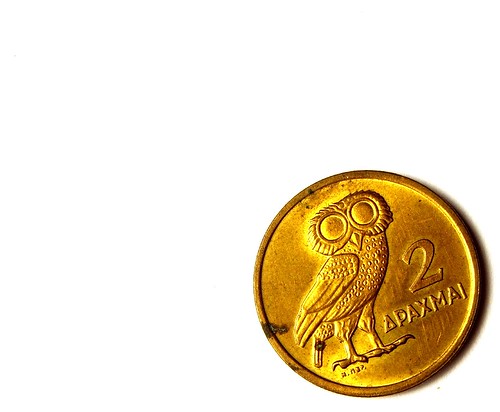
On Andy Stanley’s Enemies of the Heart
Religious self-help books are easy to dismiss, but Andy Stanley has an interesting premise here. Framing his book around the Hebrew proverb, “Watch over your heart with all diligence, for from it flow the springs of life” (Prov 4:23 NASB), Stanley suggests that Christians attend to four besetting emotions that can corrupt our inner lives: guilt, anger, greed, and jealousy.
And in a startling rhetorical move, Stanley translates each heart-issue into one of misplaced debt:
- guilt as the belief that I owe you,
- anger when I feel that you owe me,
- greed because “God owes me,” and
- jealousy when we feel that the world owes me.
I’ll reflect on greed at length, because I find Stanley’s discussion especially useful:
“Fear is the driving force behind greed… supported by an endless cast of what ifs… What if it gets lost? What if there’s not enough? What if I don’t get my fair share? What if she has more? What if the economy collapses?” (74).
I love this. As a single young woman coming from post-crisis America (wait, does America produce greed in us, because it produces uncertainty, and winners/losers, and a lack of social security for those in need?), I now live in the post-collapse states of the former Soviet Union. Where people who had it all, who played all the cards in their life right, suddenly lost it all. In this environment, I find it hard to believe that anything I do can produce security for tomorrow. And yet, almost out of habit, I still find myself trying.
Why Do you Have So Much?
In reframing greed as the fear that “God either can’t or won’t take care” of us, Stanley asks us to stop looking at what we lack, and start asking why we have “extra,” or more than we need for bare survival. (America’s extraction of resources from barely-surviving third worlders could be part of what’s contributing to our wealth, but…). And from there, he asks us to consider what we can do with what we have:
“A consumer-driven culture keeps us laser-focused on what we don’t have, and focusing on what we don’t have leaves our hearts vulnerable to greed. How? Because as long as I’m on a quest for more, then when more does come along I’ll assume it’s all for me. As long as I’m living for the next purchase… I’m consuming mentally what I hope to soon be consuming physically. That kind of attitude leaves us little margin for generosity… So let me ask you again: Why do you have so much? … Why has God provided you with more than you need?” (147-8).
From a completely religious perspective, Stanley is making the same observation as David Graeber does in his book on debt: debt keeps us enslaved to the future. Greed, and the desire for more – more honor, more status, a respected career, an impressive spouse, security against the future – all ultimately keeps us tied to the future, and “consuming mentally” far in advance of what we’re actually consuming today.
For Christians, Stanley’s solution is to engaged in Christian practices of dwelling in God, and finding one’s security in divine provision for individual human being. But he also prescribes a more Zen-like change in mental vision, where we stop viewing our possessions or accomplishments as ours, step away from ego attachments, and consider ourselves as mere managers of what God and others have handed down to us. At this point, we don’t need to feel guilty if we’re lucky, or terrified of losing what we have — it wasn’t really ours in the first place (157).
The Desires that Battle Within You
In speaking of desires, Stanley ultimately points us to Jesus’ younger brother, St. James, who wrote:
What causes fights and quarrels among you? Don’t they come from your desires that battle within you? You desire but do not have, so you kill. You covet but you cannot get what you want, so you quarrel and fight (4:1-2, NIV).
He believes this goes to the heart of “the common denominator for every relational struggle” we experience: a division between what we desire in our hearts, and what others will in theirs. “According to James,” he comments, “there are conflicting desires churning around inside me, and if you bump me too hard, what’s on the inside is going to spill out all over you” (162).
It’s an interesting analysis and explanation of the human condition. I think there is some good meat here, but ultimately I’d like to see more specific practices to counter these tendencies of our heart. Perhaps that’s to be found in books like Richard Foster’s Celebration of Disciplines (or Buddhist meditations, if that’s more your thing) instead, and I’d be interested to hear what practices readers indulge in to moderate their lives! At any rate, it’s always good to get a reminder to attend to our emotions and desires, and to use spiritual practices to nudge them in the right direction.
Review for Waterbrook Multnomah via the Blogging for Books program.
